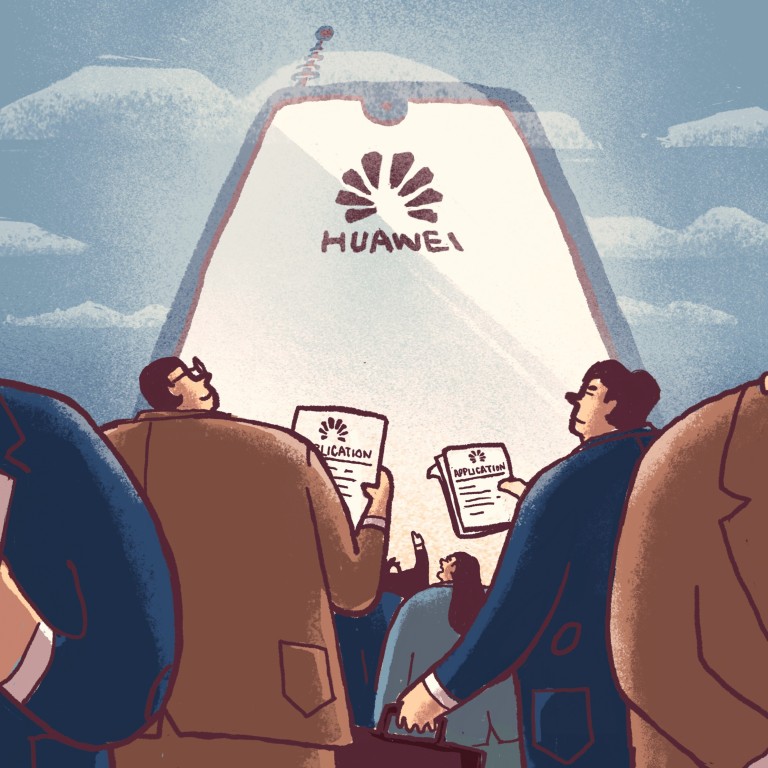
Exclusive | What’s it like working for Huawei? Employees speak and founder Ren Zhengfei offers some metaphors
- In this sixth instalment of an eight-part series on Huawei, Josephine Ma talks to four employees to ask what attracted them to the company
- Huawei has 194,000 staff worldwide and there are plans to increase headcount even as the Covid-19 pandemic slows economies and business demand
The Chinese national was in a master’s programme in public policy at Harvard Kennedy School at the time and was expected to graduate in September 2019.
That was at the request of the US, which wanted Meng extradited to face allegations that she and Huawei had committed bank and wire fraud to violate Washington’s sanctions on Iran. Meng and Huawei have denied the allegations.
“I wanted to be here and see with my own eyes what the company is like,” she said in an interview at Huawei’s headquarters in Shenzhen.
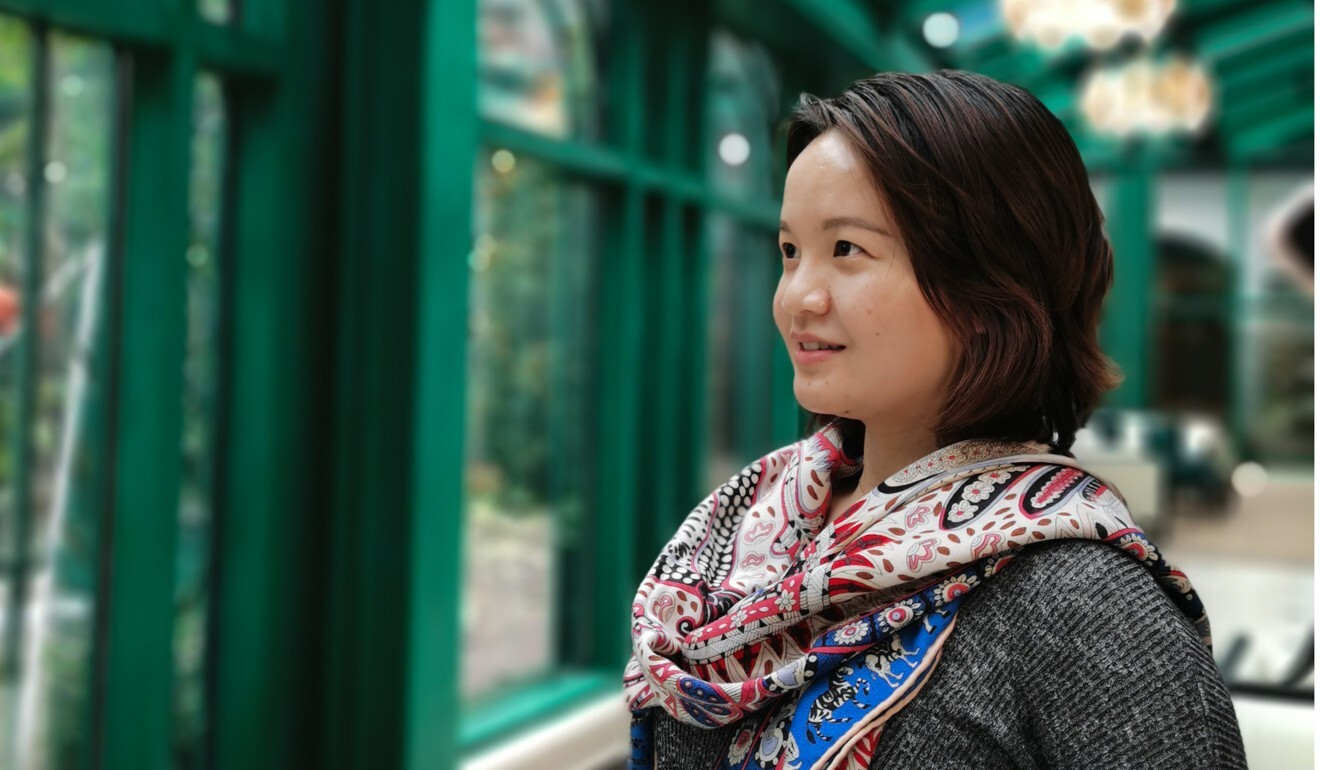
Zhao accepted the offer as a public relations manager in March the same year, but hadn’t set a start date when on May 16, the US said Huawei was a national security risk and placed it on a trade blacklist. That brought more doubts, she said.
The veiled warning: doing business with Huawei could mean losing business with the US as well as its intelligence-gathering networks.
Zhao said many of her former classmates and teachers advised her against joining Huawei.
She says she was concerned about her career path if she joined the company, but on the other hand believed the growing China-US conflict created an opportunity at Huawei for someone like her with eight years in the US and grounded in a western education.
Zhao, 27, said the opportunity and challenge to handle relations with the US tipped the scale and she started at Huawei in September 2019, even though it may mean “options may be closed in the future” for work in the US, she said.
She said the challenge now is to help Huawei build bridges with American academics in universities and think tanks. She is hoping dialogues can be set up between Huawei and think tanks such as the New York-based Council on Foreign Relations and Brookings Institute in Washington.
She joined a business with 194,000 staff worldwide. That includes more than 96,000 in research and development, reflecting an ambitious expansion drive despite the mounting political pressure from the US and its allies in the last two years.
How Huawei hones its ‘wolf culture’: make staff the co-owners
Bringing on board people like Zhao, though, is part of Huawei’s strategy to deal with attacks by the US government and western media.
Huawei said it was also eager to hire top scientists for its own R&D after it lost access to US components and technology. Again, challenges bring opportunities, said Shen Huifeng, director of human resources at Huawei’s Global Technical Services.
“Of course if the United States allows us to use their products, we will use them. But we have to develop our own when we are not allowed to use them,” he said.
“We are doing research in many areas, fundamental sciences, data, storage, etc, and they present attractive opportunities to many scientists. When people choose a company they look at the opportunities to grow,” he said.
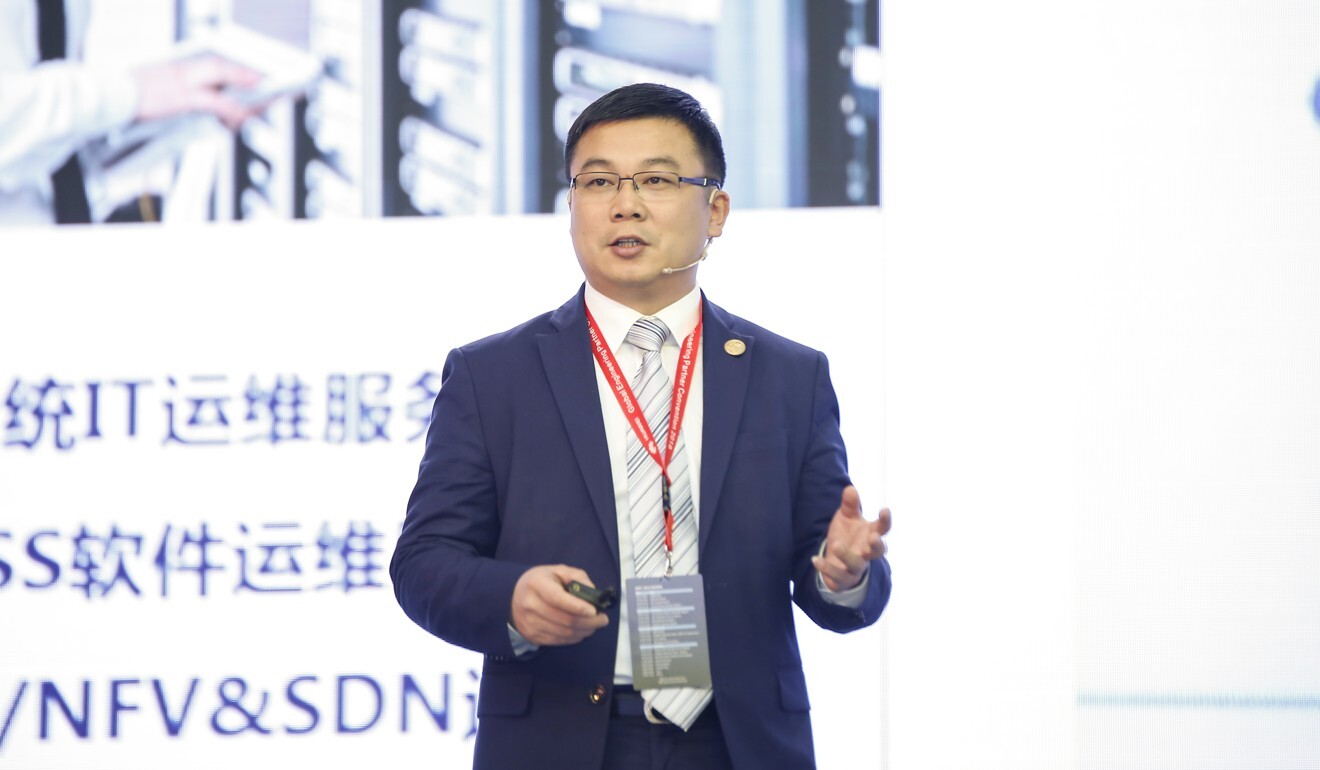
Chen Jingqi is one scientist focused on materials research at Huawei. He worked in a postdoctoral programme for Rio Tinto Aluminum in Canada after graduating from The University of British Columbia.
He joined Huawei about 14 months ago and works on development of new materials for products. A Chinese national, Chen said he wanted to return to China to work anyway and Huawei provided a good opportunity and salary.
“It is pretty simple, I wanted to come back and work in China, it is more important than the pay. I have not thought too much [about the political controversies such as the arrest of Meng],” Chen said in an interview at Huawei’s headquarters.
The company’s headquarters in Guangdong province comprises several large campuses in Shenzhan and Dongguan.
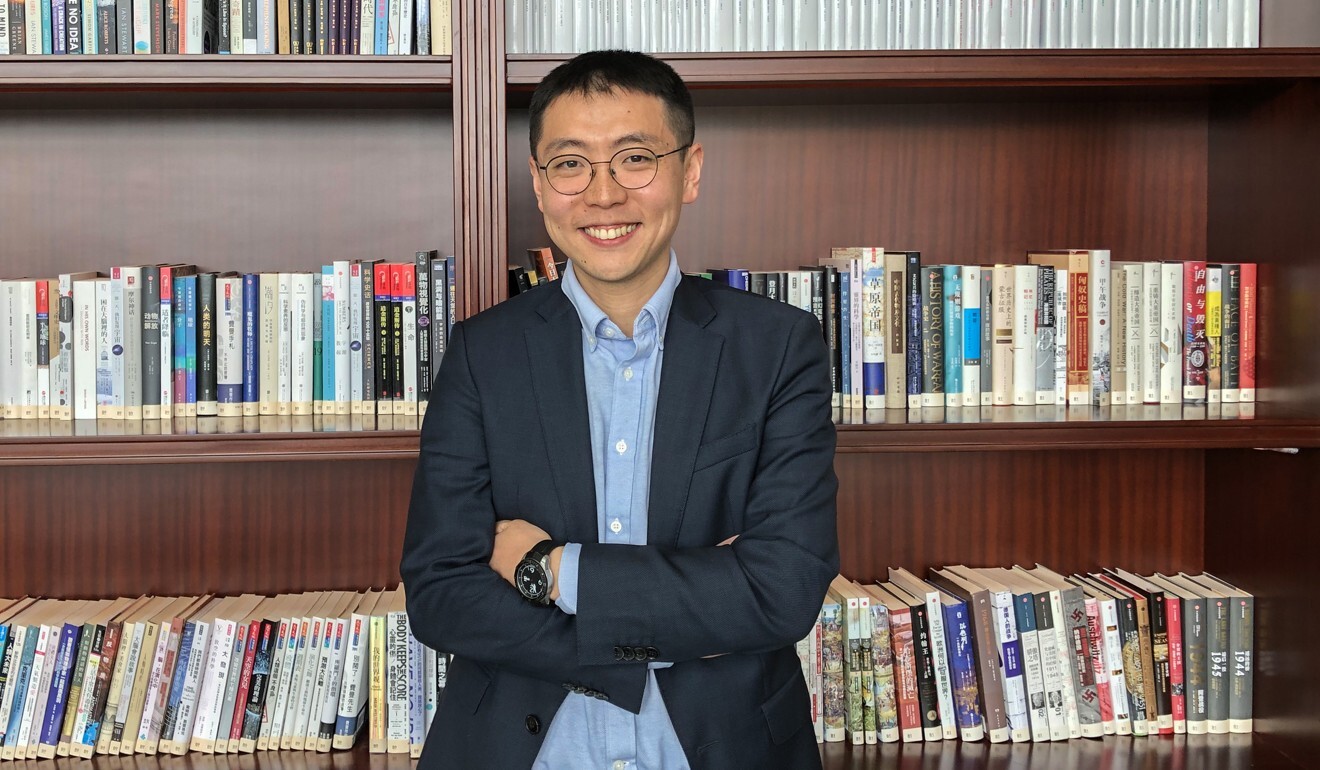
Dongguan is lined with buildings modelled after European university buildings and European towns, such as Heidelberg Castle and Cité Internationale Universitaire de Paris. The 12 zones are connected by a tram system that replicates trains in Switzerland.
Despite the beautiful campuses and reported healthy salaries and perks, Huawei has had its share of controversies with employees.
In November 2019, Hu Ling, a member of the human resources team at Huawei’s elite 2012 Lab research unit, posted a letter on internal platform Xinshengshequ that was later leaked outside the company.
Cybersecurity at top of Huawei’s agenda as Europe decides on 5G infrastructure
Hu’s post criticised colleagues, saying a head of HR had wanted to lay off employees who had complained about corporate welfare issues, such as the quality of canteen and shuttle bus services. Ren felt a need to respond and asked that such matters be dealt with in-house. Hu quit.
“Real-name complaints are good for the company’s democratic management but staff discussion should remain internal and not disturb external society,” said Ren in an internal note, which Huawei posted to its online community in November last year. “Everyone can fully express different opinions based on facts and evidence.”
But in December, Huawei again became an online talking point after it was made public that a former employee Li Hongyuan was detained for eight months on extortion charges after asking for a 300,000 yuan (US$42,350) severance payment upon leaving the company.
Li, who worked for Huawei for 12 years, said his director decided not to renew his contract at the end of 2017, after he reported to company managers about alleged fraud in his department in 2016, Shanghai-based Jiemian News reported in December last year.
Li said he negotiated a severance package of more than 331,000 yuan, and 300,000 yuan was transferred to his account through a secretary’s personal account in March 2018, according to the report. He was later taken into custody and told by prosecutors in April that the charges related to “300,000 yuan extorted from Huawei”, the report said. Prosecutors later dropped the charges on lack of evidence and Li was released.
“If Li Hongyuan believes that he has suffered damages or that his rights have been infringed, we support his right to seek satisfaction through legal means, up to and including lawsuit against Huawei,” according to a statement issued by Huawei at the time.
The publicity did have a negative impact on some of the targets of recruiters.
A Suzhou-based computer engineer in his late 20s put up a post on his social media account saying he would not consider working in Huawei. He declined to have his name used in this story.
He said the news reports on Huawei and what he heard from classmates who now work there turned him off the company, though he was approached by Huawei HR three to four times.
“Since the human resources department of Huawei are very aggressive in reaching out to people, I put up a post to avoid hassles,” he said in an interview. He now works in a multinational technology company in Suzhou.
“We don’t have a 996 or a 007 schedule.” he said, referring to the schedule of working 12 hours six days a week from 9am to 9pm or even working seven days a week, which is a practice at some IT companies in mainland China and Silicon Valley in the US.
We say if we must die, let’s die on the battlefield
But Ren does like to use military metaphors to describe working at Huawei.
“We say if we must die, let’s die on the battlefield,” was one example. And for those that struggle: “Even if we can’t handle the main fight, we can still cook for the team. You will be rewarded when the team succeeds, no matter what role you play,” he said in the interview.
Managers are also required to criticise themselves before their peers and subordinates. Ren said this criticism is part of a process of self reflection that is Huawei’s “greatest strength.”
“In our company, if a management team keeps bragging about themselves, they will be booed off stage; if they talk about what they don’t do well, everyone understands them,” he said.
“People who are aware of their own shortcomings are the ones who can change. Self-reflection is part of Huawei’s culture.”
Huawei the vanguard of China’s belt and road plan? Reality is more benign
Shen at Huawei Global Technical Services said when he worked in Nigeria, the company provided good accommodation and even flew chefs in from China. “Huawei canteens often serve the best Chinese food in town,” Shen said, adding that it was still a tough posting.
He said there was unstable electricity supply and no tap water in the company’s staff compound area in Lagos. Huawei drilled wells 200 metres deep and brought in its own generators, said Shen, who was a vice-president in charge of delivery and service of the West Africa region from 2011 to 2013. .
They had to hire security firms to protect the staff from being robbed, he said. “Although the environment outside was not good, Huawei always ensured the conditions inside the staff compounds were good,” he said.
Shen said Huawei was able to grab a majority market share in many developing countries because it offered services and prices that rivals couldn’t match. Huawei was known for its aggressiveness in emerging markets in getting the job done.
Shen said during a strike in Bangladesh in 2004, Huawei amassed a fleet of trucks to deliver equipment to clients when the roads were blocked by protesters. Engineers went on foot to set up the base stations with the equipment, he said.
After 11 years in emerging markets in Latin America, Africa and Southeast Asia, Shen is now director of human resources of GTS Huawei and a vice-president of the 30,000 employee-unit to provide technical support to global Huawei clients.
‘I’m not Huawei’s spiritual leader. I’m a puppet leader,’ Ren Zhengfei says
For how Huawei faces up to some of the other challenges, Zhao in public relations said her job is to better introduce Huawei to Western countries, but also help Huawei better understand what makes Western nations tick.
Although Huawei has learned much from the West in terms of technology and company structure, it has not learned how to make its own voice heard in those countries, she said. She said she started organising debates among colleagues in her department to help them better understand the critical thinking inherent in Western education systems and behaviour.
Zhao has just started her job and is trying to reach out to American universities and think tanks, but she anticipates difficulties.
“If I use Huawei email, they may not reply or if you tell them you are from Huawei, they may just walk away,” she said.
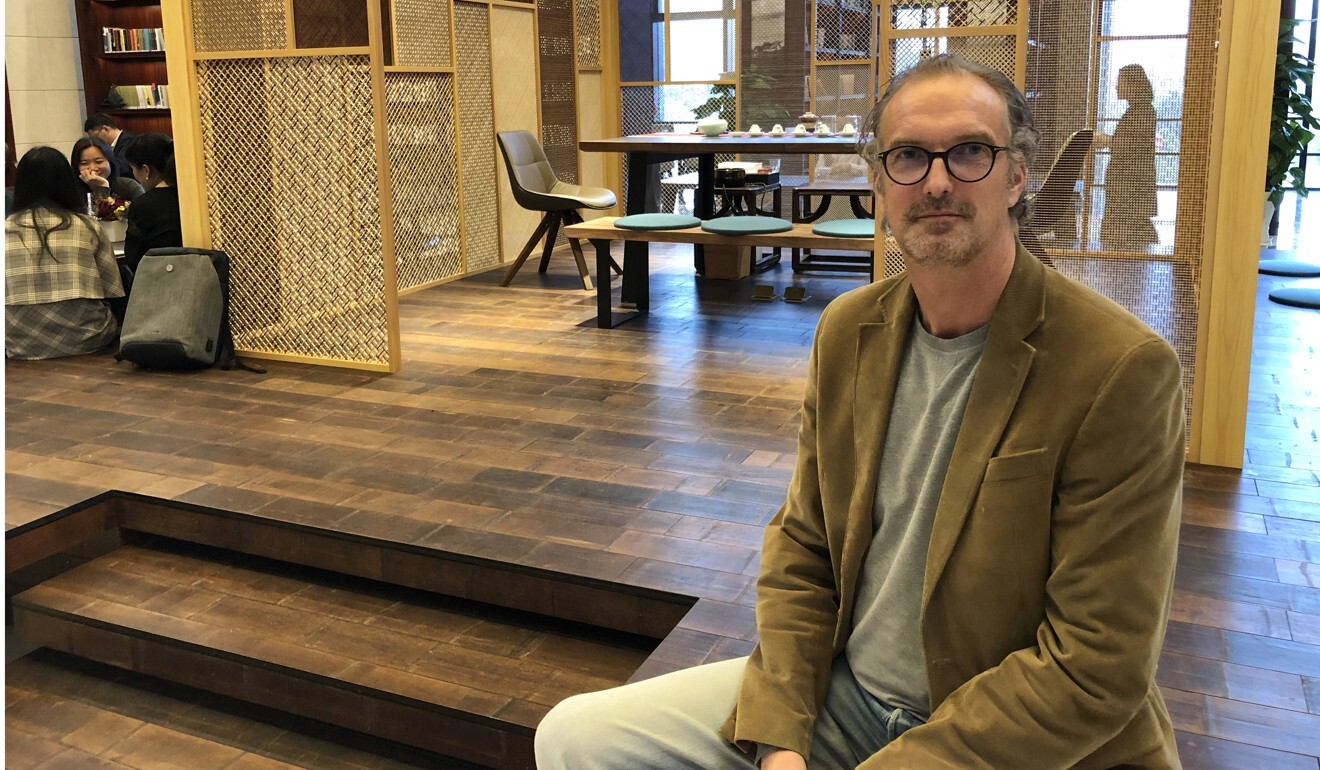
Former Cisco executive Hank Stokbroekx, who joined Huawei eight years ago as vice-president of enterprise services, said Huawei company culture is not as aggressive as it is made out to be.
“Here we talk about Cisco as our friend. In Cisco, when we talked about our enemies, we said we were going to eliminate them … These things you won’t hear here. The attitude here is much friendlier. Of course we want to be successful, but the attitude is much more friendlier than western companies,” he said.
Stokbroekx said Huawei had undergone tremendous changes since he joined as the company had to live up to public expectations when it became well known.
“With the overseas expansion we had to step up our professionalism,” he said
“With the smartphone business, device business, enterprise business, the exposure is much bigger. Suddenly everybody is your customer and you are scrutinised much closer than before. You are in all the newspapers and magazines, everybody starts to know your brand name and you want to make sure you live up to the expectations that your brand name creates.”
But as international scrutiny of Huawei continues to grow amid the conflict with the US, the company is bracing for more changes. For one, Stokbroekx said business negotiations have become “more complex”.
“[When talking to potential clients], now we first have to spend 30 minutes to an hour to first address cybersecurity issues and about all the things that are written in the media.
“It is just something you need to take into the conversation, you cannot just dive in and say let’s look at what products we have,” he said.
“You always have to get to the concerns they have, then you can talk about the products and technology.”









